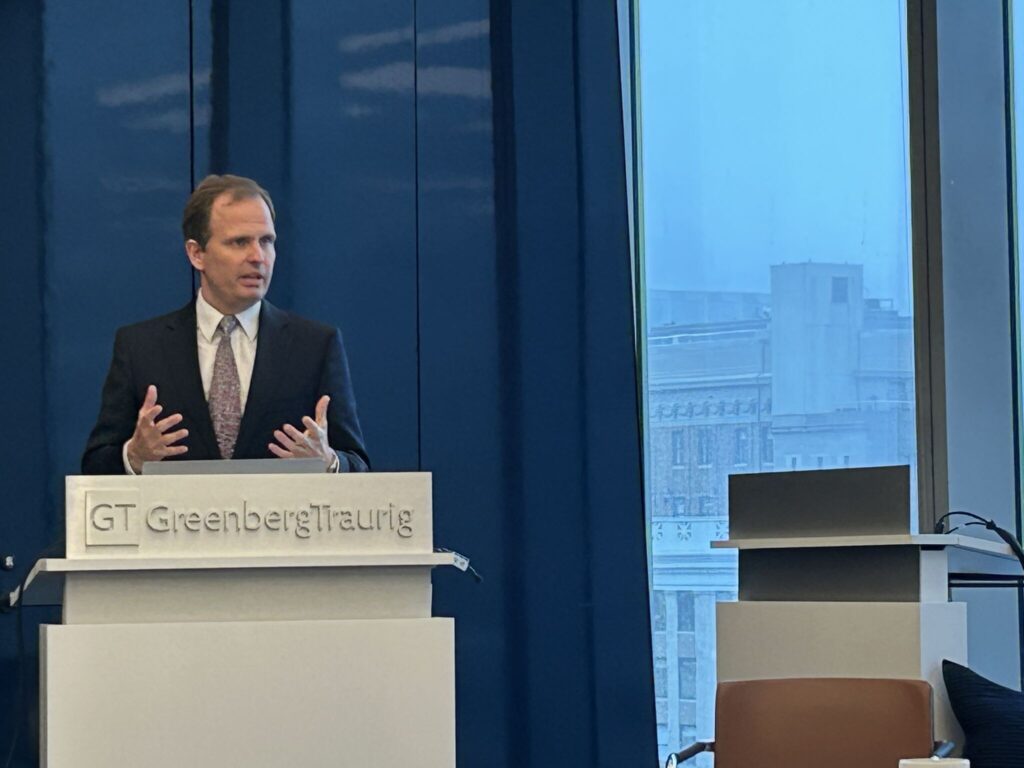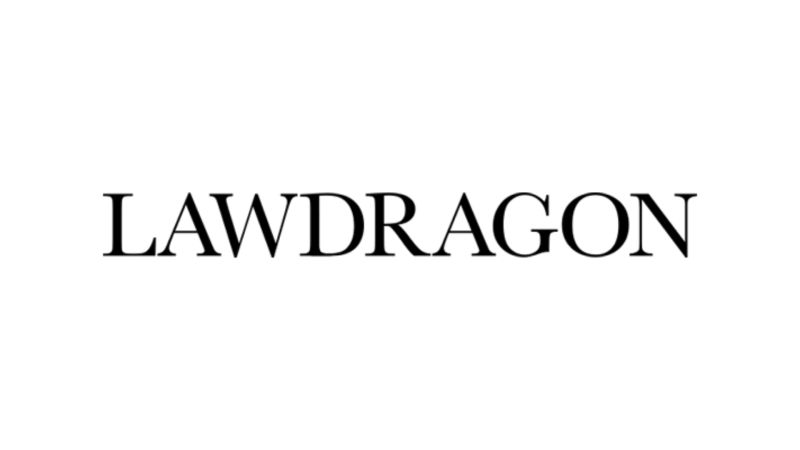Bell Yard Communications is delighted to once again be ranked in Chambers and Partners’ Litigation Support Guide 2025. We are grateful to have maintained our position year on year since the guide’s inception in 2018. Clients say “Bell Yard have the track record and experience to give top-level advice that we trust. They are responsive, knowledgeable and have real credibility.”
Our MD Mel Riley is personally recognised for her litigation PR counsel, with clients saying she is: “brilliant: intelligent, responsive and cuts to the chase.” “Melanie is one of the first to do litigation PR in the UK.” “She really understands the legal issues involved and provides really good advice”.
Similarly, our Director Louise Beeson is recognised with a ranking, with referrers praising her as a “star” who knows her clients “inside and out”, as well as being “measured, commercially astute and utterly delightful to work with”. “We trust her implicitly to do the very best on our behalf”.
Join us in congratulating Mel, Louise and all those who are ranked this year.
This is a fantastic achievement, for which we thank all our clients and referrers. Not resting on our laurels, 2025 is once again a busy year for our litigation PR specialists. If you are looking for support, do get in touch.
Month: June 2025
Bell Yard Recognised Again in Chambers Litigation Support Guide 2025
Calling for Change: Collins Solicitors is Addressing the Failings of the Infected Blood Compensation Scheme
On behalf of clients, we would like to thank Sir Brian Langstaff and his team, especially the forensic Jenni Richards KC, for their efforts this week to shine a light on the inadequacies of the Infected Blood Compensation Scheme (IBCS) and the Government’s approach to compensation for the infected blood community.
Senior IBCS and Cabinet Office representatives can now be in no doubt as to the deficiencies of the scheme from the community’s perspective. We heard there are fundamental problems both with the design of the scheme as well as aggravating issues with its delivery.
Sadly, the Paymaster General was probably right to say we can’t at this point start again – it would indeed cause yet further interminable delay. But improvements can still be made and are essential if we are to honour our obligation to the Infected Blood community as outlined in the Public Inquiry Final report.
Regulations can be tweaked. Tariffs can be increased. More staff can be hired. These are all possibilities if the Government wants to demonstrate it has heard the community and is committed to justice for them.
The British Blood Scandal: Poisened at School
Looking forward to watching ‘The British Blood Scandal: Poisoned at School’ on ITV this evening, featuring some of our clients as they relive their childhood experiences at Treloar’s school, their battle for compensation and their quest to ensure there is a memorial for former friends who died as a result of the treatment there. Do tune in! It promises to be compelling viewing…

SDT Grants Anonymity in Rare Non-Financial Misconduct Case
An interesting case reported today from the SDT – allowing rare anonymity to the perpetrator of non-financial misconduct at a law firm. One assumes the medical evidence was so stark that it convinced two of the three panellists to grant the application.
My view is that others in the profession facing similar charges should not take too much comfort from this ruling – as there are still plenty who can attest to the impact of being named and thereafter shamed.
That said, there are ways to handle this type of spotlight and much will depend on the prior reputation of the accused among colleagues and the profession at large.
Growing the CLCA – ATREVIA
We are looking forward to working with our new Crisis & Litigation Communicators Alliance (CLCA) peer firm ATREVIA which has litigation PR expertise in both Spain and Portugal.
Crisis & Litigation Communications Alliance Annual Conference
It has been a joy to attend the Crisis & Litigation Communicators Alliance Annual Conference in NYC.
We were treated to fascinating (and sadly prescient vis India/Pakistan) insights from the captivating Jack Devine as well as valuable learnings from David Miller and Daniel from their extensive careers as white collar attorneys in NY. Thank you to Greenberg Traurig, LLP for the generous hospitality – what a view it would have been from the 29th floor office at One Vanderbilt…
A huge note of appreciation to Andrew Frank Eric Andrus Alana Abramson Tehya Frank and all at KARV for being the most welcoming and efficient hosts!
Thank you too to our General Secretary over the past year, Henrik Hierl.
Finally, it was the perfect opportunity not only to welcome our impressive new member Pascale Kauffman at Apollo Strategists but also to show our appreciation for the outgoing Chair, Martin Jenewein of SMJ Partners who has steered the Alliance with such charm and dedication over the past 7 years.
We now know we will be in good hands with his newly-elected successor, Nicolai F. Bonnén Rossen, with the energy and creativity he will bring to bear. Nic has also kindly offered to host next year’s AGM in Copenhagen – I’m already looking forward to attending.
In truth there is little better than getting together in person to share ideas, best practice and intentions with experienced professionals from across the globe in hashtag#litigationPR and hashtag#crisiscommunications
Here’s to the Alliance’s continued growth and ever-expanding cross-border cooperation between members in the coming year to benefit lawyers and clients alike.

Bell Yard turns 22!
Happy anniversary Bell Yard Communications! I never thought 22 years after founding the agency I’d be holed up in a women’s prison in Berlin….
Yet I’m delighted to be here with @CLC Alliance colleagues Uwe Wolff Martin Jenewein Henrik Hierl and honoured to be speaking tomorrow at CONSILIUM Rechtskommunikation GmbH ‘s Litigation PR summit with a perspective from London on reputation management challenges.
A big thank you to all my colleagues, clients, and agency friends, past and present, for the incredible journey. Here’s to finding out what the next 22 years brings!
The power of an apology
Few among us could genuinely deny having made errors of judgment, whether inadvertently or otherwise. To err is human, as we are told. However, why do those in positions of power find it so hard to say sorry and admit their mistakes?
This affliction is not the preserve of the politician but there’s a certain regularity of occurrence within the Westminster estate. This week it’s Rachel Reeves and her necessary ‘U-turn’ on winter fuel payments to pensioners. Recently it was Sir Keir Starmer’s turn, over the ‘glasses for passes’ controversy, though apology came there none. To give him his due, the PM is learning – having recognised his rudeness to Plaid Cymru’s leader, Liz Saville Roberts saying simply: “I think last week I was overly rude and I apologise.” The matter was rightly then put to bed.
A swift admission, recognition of wrongdoing or perceived wrongdoing, personal reflection and public apology allows media commentators and therefore voters to move on.
But similar responsibilities apply to leaders of businesses, from whom an apology for the wrongdoing of their companies and/or themselves usually has to be forced out of them only after bucketloads of ink has been devoted to the scandal. It took Paula Vennells 5 years after leaving the Post Office and a decade or more after the wrongful prosecutions of postmasters, to utter a public apology – through tears – at the Inquiry. Too little too late.
Sir Ken Clarke was roundly criticised after failing to acknowledge his responsibilities and those of his department during the handling of the contaminated blood issue in the 70s and 80s that gave rise to thousands of people being infected by HIV, HepC and other diseases. His evidence to the Inquiry was tainted by that failure, and he clearly caused great irritation to the Chair.
Dame Alison Rose, former CEO of NatWest, was somewhat quicker in recognising her “error of judgment” when discussing the bank’s treatment of Nigel Farage – a mere three weeks after the story was exposed by the BBC. Her resignation took a further 24 hrs.
The CBI’s former head, Tony Danker, was more swift – but his was a qualified apology in the wake of non-financial misconduct allegations, taking a further three weeks to proffer a fulsome regret, alongside his resignation.
Some will say that internal investigations take time for the truth to emerge – but a news-hungry media or disgruntled voters, consumers or shareholders rarely have the patience to dance to the rhythm of a highly-lawyered investigation.
There’s a common theme that runs through these initial reactions to regulatory shortcomings, governance failures, personal misconduct and breaches of duty: an initial lack of awareness of the “right thing” to do that usually takes outsiders to point out. Yet an immediate response could be pretty simple: tell the truth as far as it’s known, acknowledge the perception of past mistakes and their impact and don’t shy away from saying sorry. In other words, own the difficulty.
In some cases, the sting may not be fully eased by these three obvious steps, but they are likely to go a good way towards pacifying an increasingly disillusioned audience being whipped up by a ruthless fourth estate. Public opinion can sway as more facts emerge, but reputations are rarely enhanced by the drip feed of titbits that give oxygen to the controversy yet raise more questions than answers.
In our line of work we recognise the power of ‘sorry’ to take the wind out of the sails of even the most ardent opponent. Contrary to the beliefs of some in the legal sector, an apology is not necessarily an admission of liability, rather an expression of empathy that, provided sincerely expressed, can be a route to forgiveness or at least acceptance and a level of mutual understanding.
Politics has its own unique drivers – and the deep-seated aversion to giving any currency to your political opponents from an admission of error is what drives the attempts at obfuscation, diversion and massaging of the truth, which simply enrages Joe Public.
To avoid this death spiral, captains of industry and public officials alike must take counsel from diverse and objective advisers prepared to speak truth to power in order to restore the most impactful of all reactions: trust. It comes from a willingness to demonstrate vulnerability in order to manage expectations about your intentions, competence, and reliability.
I’m sorry but sorry works – trust me!
Growing the CLCA – LaFrenchCom
Bell Yard is delighted to welcome LaFrenchCom, a leading French independent crisis communications consultancy, to the Crisis & Litigation Communicators Alliance (CLCA).
Bell Yard helped found the CLCA to be an international network of like-minded PR firms with specific expertise in litigation, legal and crisis matters.
It is always helpful for us to have trusted partners to collaborate with should client matters require assistance overseas.
We very much look forward to working with our new partners LaFrenchCom – Agence de communication de crise going forward.
Founded in 2010 by Florian Silnicki, LaFrenchCom has an impressive portfolio of clients and a wealth of expertise that is confirmed by its ranking among the best crisis communications agencies in the Décideurs Leaders League 2023.
Bienvenue à la CLCA, LaFrenchCom!
Bell Yard recognised by Lawdragon
We are proud to announce the continued recognition of Bell Yard’s Mel Riley, Sarah Peters and Louise Beeson in the 2024 Lawdragon Global 100 Leaders in Legal Strategy & Consulting list.
Bell Yard’s inclusion in the 10th edition of this esteemed list underlines the excellent service our senior team provides advising clients on crisis communications, litigation PR and law firm reputation management.
Lawdragon made their selections through submissions, journalistic research and vetting from peers and clients.
Congratulations to all those who have also been featured in this list and grateful thanks to Lawdragon for this much appreciated recognition.





